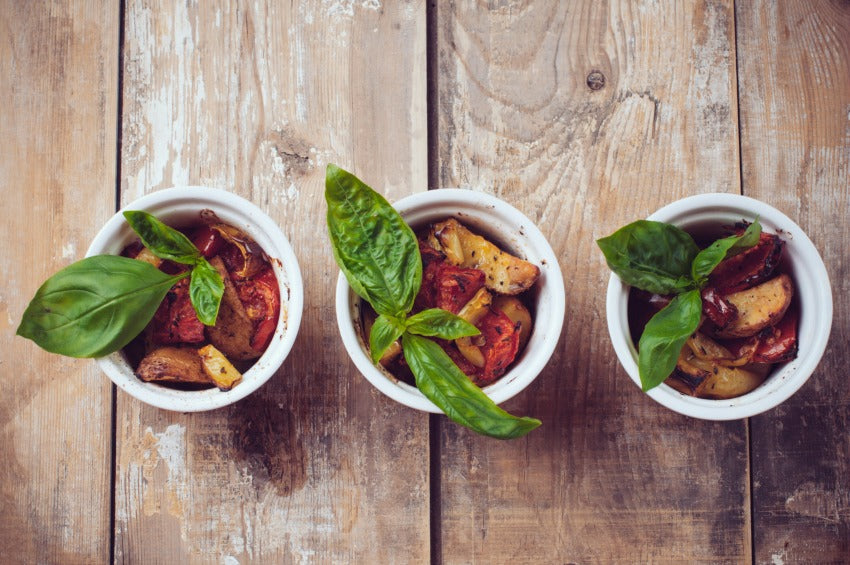The Power of a Plant-Based Diet
- Editors of FitBump
- May 13 2015
- 0 comments

Judging by Beyoncé’s new vegan meal-delivery service, 22 Days Nutrition, plant-based eating isn’t going anywhere anytime soon. And while switching to veganism might seem like a big move—particularly during pregnancy—bolstering a diet with whole, plant-based foods can be doable and delicious. In fact, Ashley Koff, R.D., an award-winning dietitian and the creator of the Better Nutrition, Simplified program, says that while she doesn’t think one necessarily needs to “go vegan,” pregnant women “should aim for a plant-based diet that is nutrient-balanced at each eating occasion.”
Koff, who has worked with celebrities like Emily Deschanel, who stuck to a vegan diet during her first pregnancy and is currently doing the same for her second, doesn’t advise pregnant women to make dramatic dietary changes, but believes that tweaks can be made with thoughtful planning and preparation. (It’s not always about going meatless: Koff points out that while some women can’t tolerate meat during pregnancy—for digestive or sense-oriented reasons—others go in the opposite direction, choosing to eat eggs, sardines or other animal products.)
Here are some of her tips for putting more plants on your plate.
Strike a Balance
Plant-based eating comes with its share of considerations, including the possibility of an uneven nutrient balance. “This is when you go from having a balance of carbs plus protein plus fat to not having one of those, or insufficient amounts, or having too much of another,” explains Koff. “It’s common when switching to a vegan diet to overdo it on carbohydrates, which is a risk to us all in terms of energy and blood sugar getting to the cells, but especially for pregnant women to help maintain healthy blood sugar levels.”
Striking that balance includes getting adequate vitamin D, which can be difficult to get enough of (Koff recommends taking a supplement), and B vitamins like folate (also known as vitamin B9 and critical for a healthy pregnancy) and vitamin B12 (important for the development of the brain and nervous system). Koff says a diet filled with veggies should cover you and that when it comes to vitamin B12, there should be no need to add more beyond a prenatal vitamin unless advised by a doctor.
Figure Out the Food
When it comes to strategizing menus, focus on nutrient-dense foods, but shoot for simplicity, too, so you are more apt to stick with the plan. “Make sure you have fast, easy options like hemp hearts and nut butters and frozen organic veggies to whip up,” says Koff.
Essential fatty acids, for example, which include omega 3s and omega 6s, can be obtained by eating hemp hearts, chia seeds, walnuts and avocados. Oatmeal (Koff likes Nature’s Path Qi’a); smoothies made with coconut milk, hemp hearts and organic pre-portioned fruit and veggie combinations (like Earthbound Farm Kale Berry Kickstart); and snacks like coconut chips (Navitas Naturals is a favorite) are good choices, too.
To help streamline things even more, Koff offers a list of 65 “prenatal pit stops”—snacks (like an iron-rich trail mix made with dried apricots, pistachios and pumpkin seeds) and main dishes that are vegan or can be made so with easy substitutions or omissions.